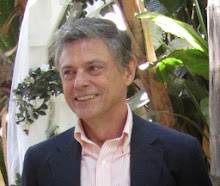Monday, March 4, 2013
AP EUROPEAN HISTORY
POSTWAR EUROPE: RECOVERY, COMMUNISM, AND COLD WAR OVERVIEW
- Western European Recovery 1945-1957
- 1945
- Germany’s Ruhr Valley (aka Ruhr Basin)
- reparations
- Morganthau Plan
- 1946
- partitioning of Germany
- occupation zones
- French, German, American, Soviet
- Soviet becomes East Germany
- remainder becomes West Germany
- Communist agitation in France and Italy
- 1948
- Czech Communists seize power in Czechoslovakia
- the Marshall Plan
- George Marshall
- 1949
- North Atlantic Treaty Organization (NATO)
- Federal Republic of Germany (West Germany)
- 1950
- European recovery
- free trade
- policy of containment
- 1952
- Schuman and Monnet Plan
- European Coal and Steel Community
- 1955
- the Warsaw Pact
- 1957
- European Economic Community
- Common Market
- Communism: the Soviet Union and Its Satellites (Soviet Bloc)
- 1945
- Eastern European countries
- Albania and Yugoslavia
- 1945-1953
- land distribution reforms
- collectivization
- Five Year Plans
- police state
- Joseph Stalin
- Great Patriotic War
- gulags
- 1949
- test of 1st atomic bomb
- 1953
- test of 1st hydrogen bomb
- death of Stalin
- Lavrenti Beria
- beginning of resistence in satellite countries
- 1956
- Nikita S. Khruschchev
- crimes of Stalin
- cult of personality
- de-Stalinization
- Polish, Hungarian revolts
- Wladysaw Gomulka
- 1957
- Sputnik
- intercontinental ballistic missiles (ICBMs)
- 1964
- Khruschchev ousted
- Centralized economie planning (Gosplan)
- failure of collectivized farms
- 1968
- Soviets invade Czechoslovakia
- the Brezhnev Doctrine
- Leonid Brezhnev
- Cold War
- conflict between the Soviet Union and the West
- the superpowers (US and USSR)
- 1st. world, 2nd world, 3rd world
- Marxist revolutions in Asia, Africa and Latin America
- nuclear arms race
- “balance of terror”
- collapse of the Soviet Union
- new world order
- 1945-1947
- Communist strikes in Western Europe
- takeover of Eastern Europe nations
- Truman Doctrine
- 1948
- Soviet blockade of Berlin
- the Berlin Airlift
- European Recovery Plan (Marshall Plan)
- 1949
- Chinese Communist Revolution
- Mao Zedong (Communists)
- Chiang Kai-shek (Nationalists)
- Formosa (Taiwan)
- 1950
- the Korean War
- Kim Il Sung
- Syngman Rhee
- 38th parallel
- Soviet boycott of UN Security Council
- Gen. Douglas MacArthur
- Inchon
- the firing of MacArthur
- armistice 1953
- 1953
- death of Stalin
- Khruschchev
- peaceful coexistence
- 1955
- Geneva Summit
- President Eisenhower
- Soviet leaders
- French and British Prime Ministers
- 1956
- wars in the Middle East
- the Geneva Accords
- partitioning of Vietnam
- 1959
- Communist takeover of Cuba
- Fulgencio Batista
- Fidel Castro
- 1960
- the Paris Summit
- the U-2 incident
- 1961
- Bay of Pigs invasion
- John F. Kennedy
- Berlin Wall
- 1962
- U.S. “military advisors” in Vietnam
- South Vietnam
- Vietcong
- Vietminh
- Cuban Missile Crisis
- 1963
- Nuclear test ban treaty
- the “hotline”
- Failsafe theory
- rift between USSR and Communist China
- 1964
- China joins “nuclear bomb club”
- 1965
- Lyndon Baines Johnson
- escalation of Vietnam war
- the Chinese People’s Republic (aka PRC or communist China)
--1969
- Richard Nixon
- Henry Kissinger
- detente
- Strategic Arms Limitation Talks (SALT)
- U.S. lands on the moon
- 1970
- Nonproliferation treaty
- India joins “nuclear bomb club”
- 1972
- Nixon visits China
- beginning of “the Thaw”

